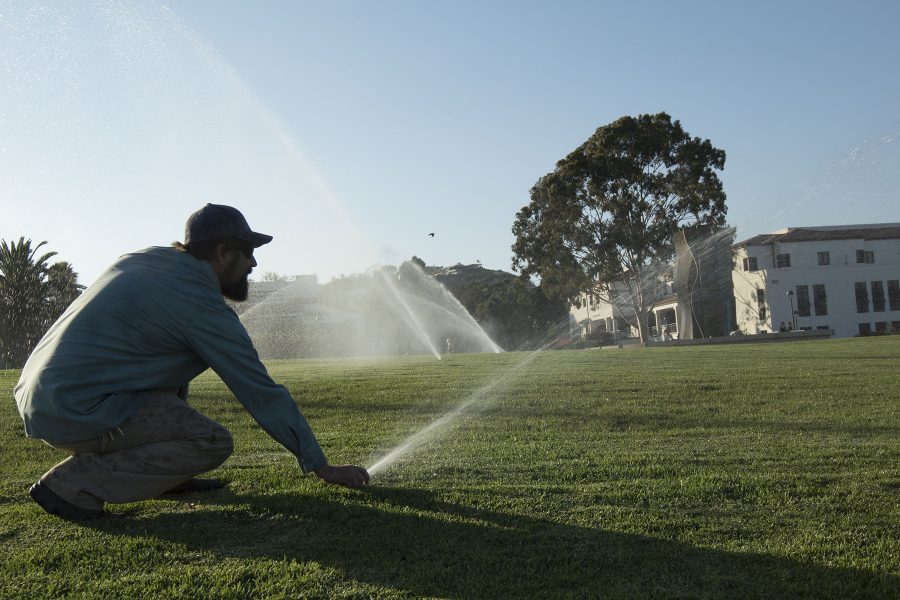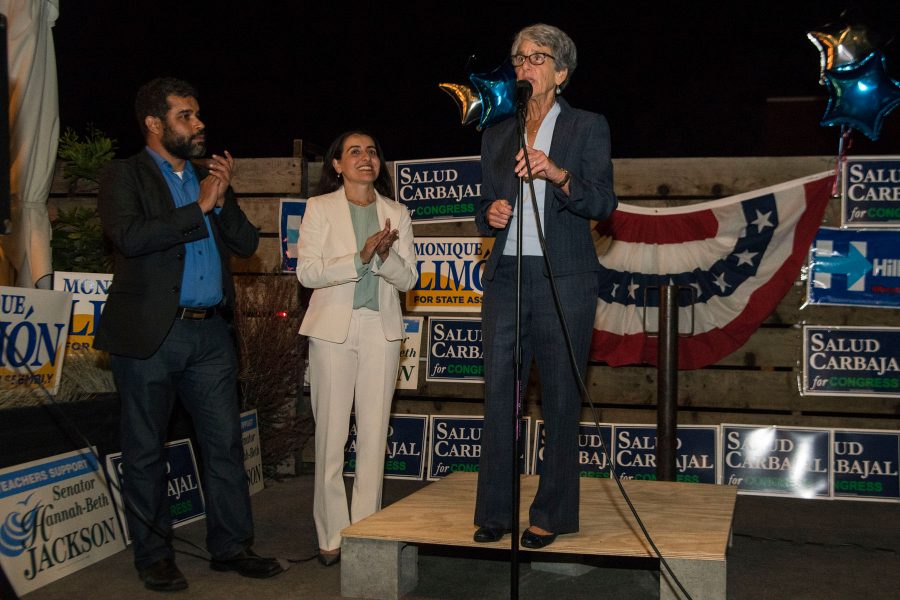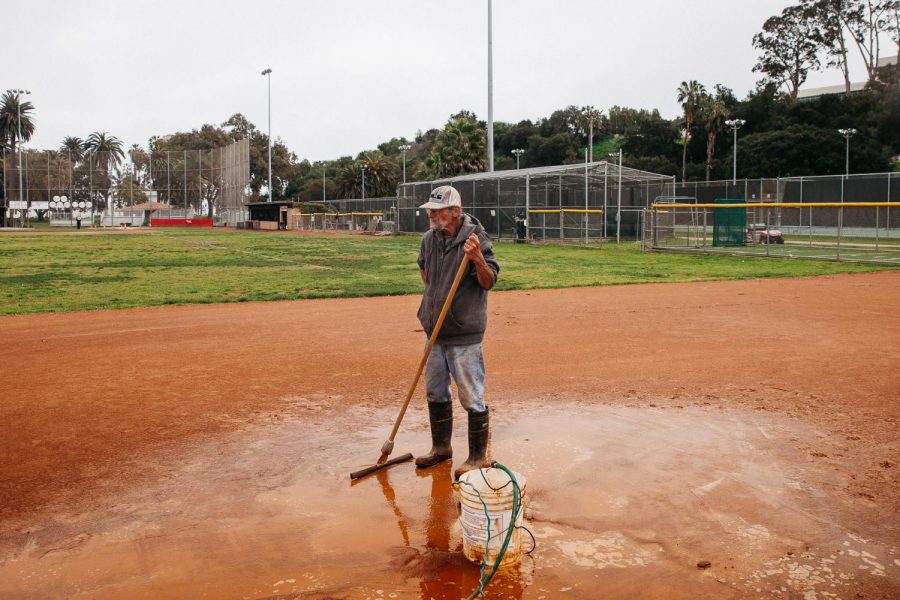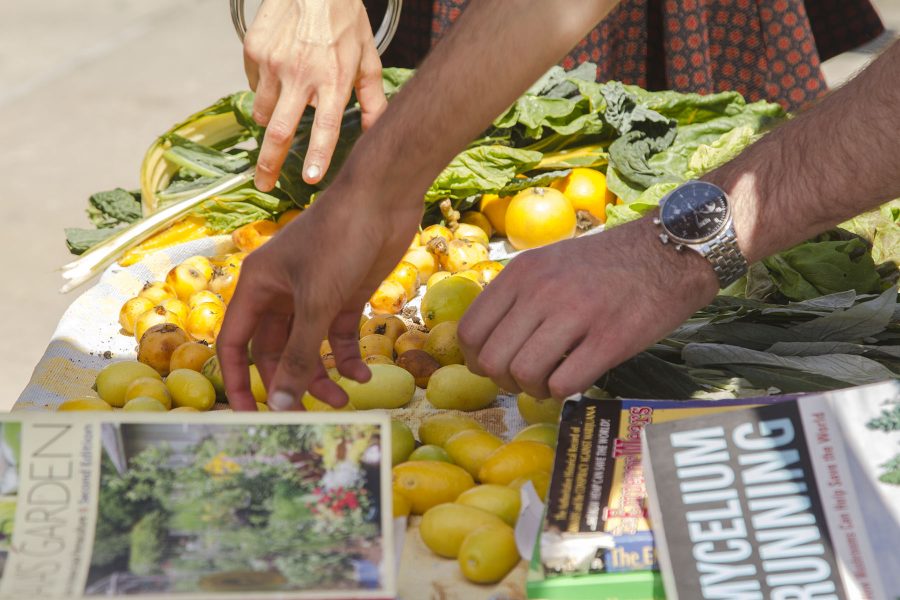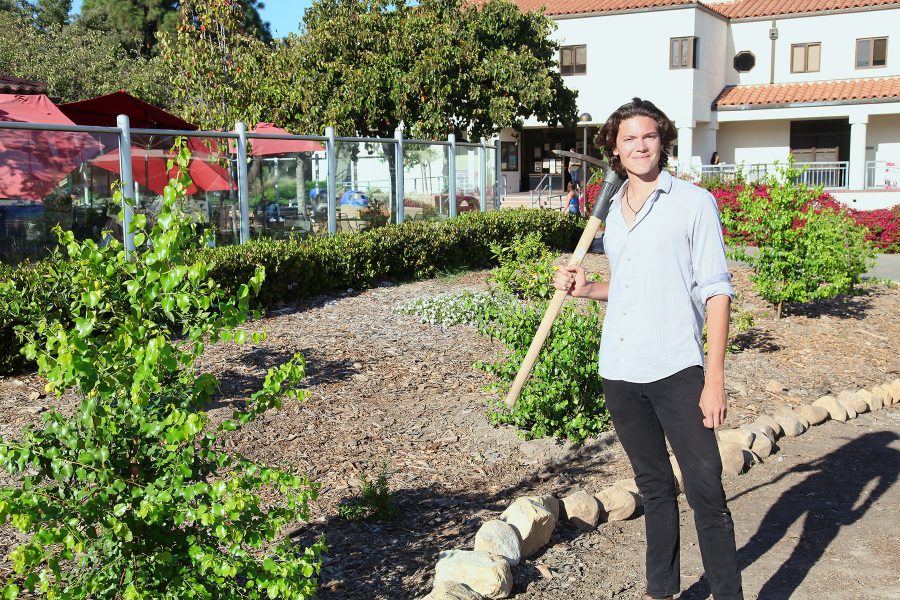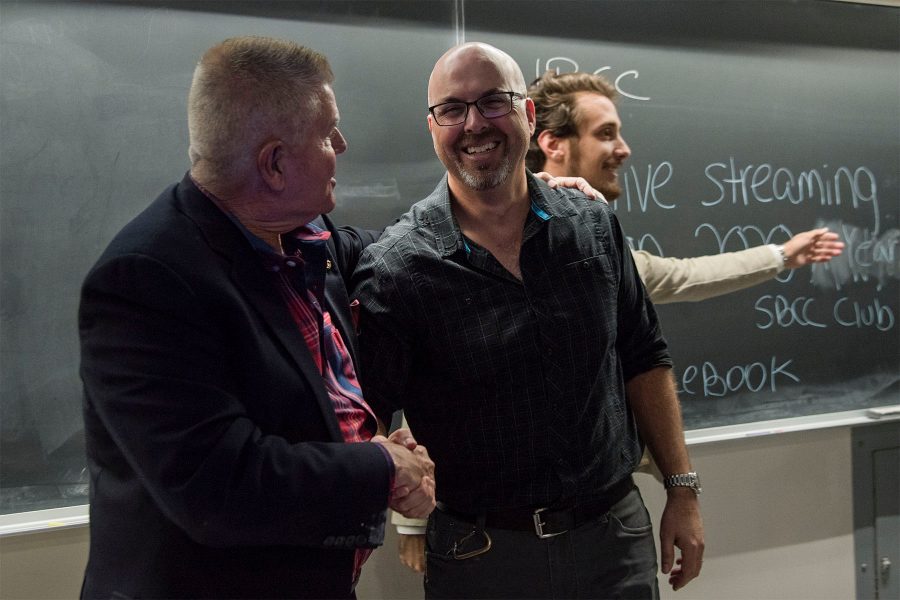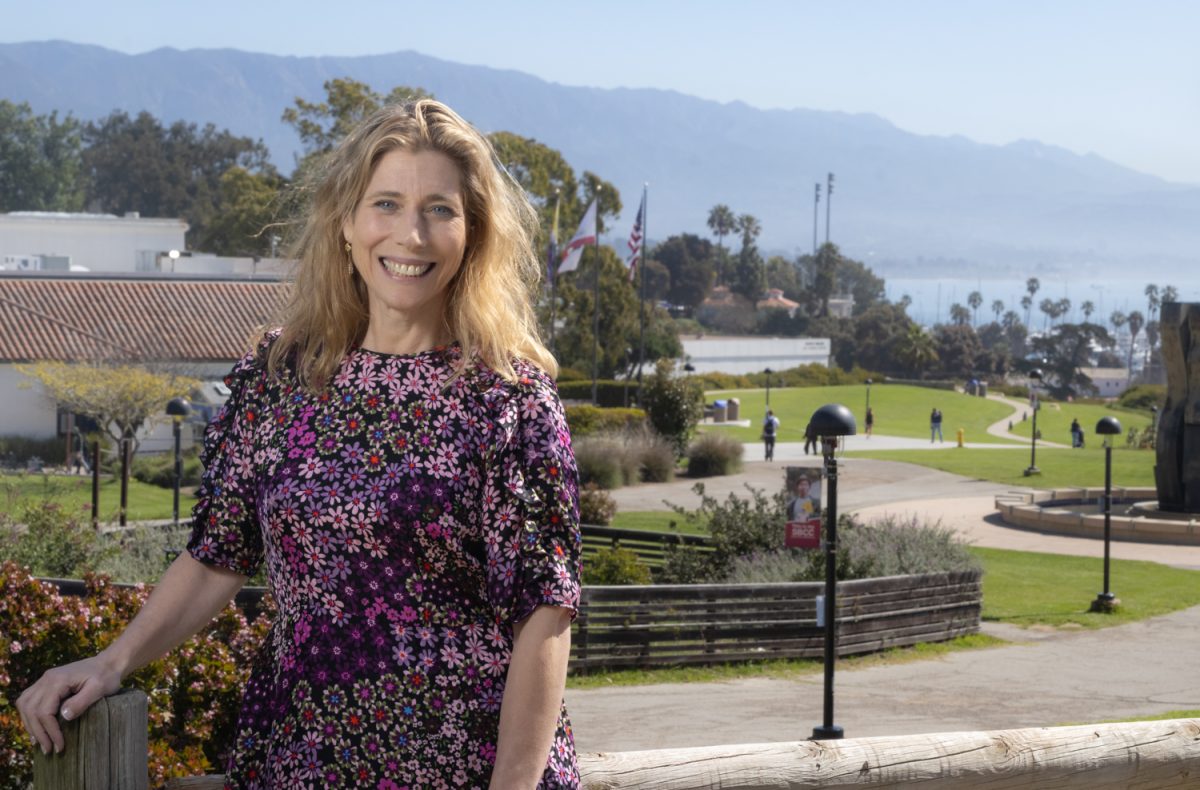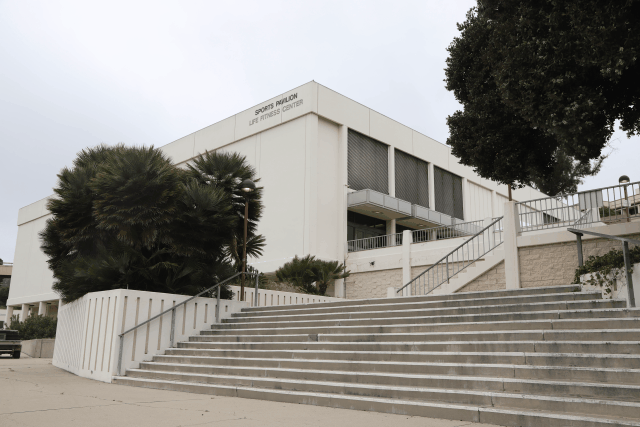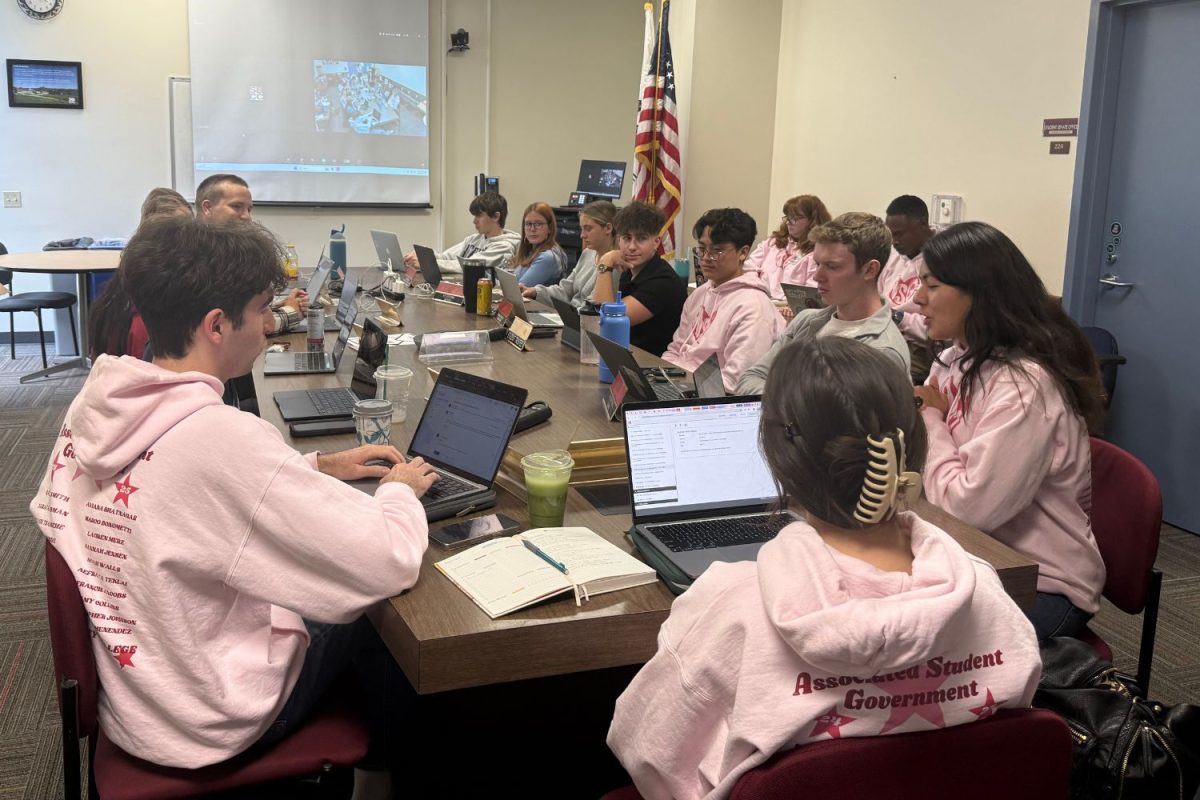As students and faculty walk across campus, they notice that the once dried up and not so desirable looking grass is now plush and green again.
“There’s no real secret, we just have water now,” said Mark Broomfield.
Broomfield has been the ground maintenance supervisor for over three years now and worked in the horticulture department for four years prior to that.
He explained that the drought forced City College to stop using as much water, causing its lawns to dry up.
The grass at City College is an invasive species that grows down into the earth to three feet, so though it appeared to be dead, it was actually just dormant.
The term “black water” refers to the recycled water system currently being used on the college’s lawns, along with parks all over Santa Barbara. The system runs from the El Estero Wastewater Treatment plant to La Cumbre Country Club.
The plant is now a state of the art water treatment facility after its $30 million upgrade.
“The only bad thing is, it basically fell apart in the worst drought in recorded history,” Broomfield said.
Black water is everything that goes down the drain, which then goes to the plant and goes through four treatments to make sure any harmful bacteria is killed off. Only water can fit through the filter, ridding it of anything toxic.
The system is so advanced that readings of the waters cleanliness is being taken at all times and if it senses the water isn’t as clean as it should be it gets sent right back through the system, Broomfield says.
Although California is still in a stage three drought, the system went back into action last October. The standard facility is expected to last for 30 to 40 years.
Another perk of the recycled water system is that the city has to pay a pollution discharge fee, so it costs taxpayers more to dump the water in the ocean.
City College wants to set an example of being as water wise and efficient as possible. It has always been a priority to show students the best way to use all of its available resources.
“The college is a living laboratory,” said Adam Green, chair of environmental studies.
The campus has been free of herbicides and pesticides since 1997, and is all-organic. Using the recycled water to keep lawns at their best is just another way to show students the benefit of being environmentally friendly.
“When the recycled water comes back you feel so much more free about it,” said Broomfield. “I don’t feel guilty anymore.”


